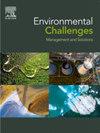Quantifying the synergistic effects of social and human capital in farmers' decisions to adopt organic rice farming: A case study of Lombok Kulon village, Indonesia
Q2 Environmental Science
引用次数: 0
Abstract
The adoption of organic farming practices is critical for achieving sustainable agriculture, yet it faces barriers such as resource limitations, market access, and farmer empowerment. This study employs data from 100 farmer households to quantify how social and human capital jointly shape decisions to adopt organic rice farming in Lombok Kulon Village, Indonesia. By addressing a gap in existing literature—which often treats these factors separately—this research clarifies that trust, social networks, and reciprocity (social capital) interact synergistically with education, skills, and experience (human capital) to influence adoption. Using a mixed-methods approach, including surveys, interviews, Confirmatory Factor Analysis (CFA), and Structural Equation Modeling (SEM), the research identifies trust, social networks, and norm as pivotal dimensions of social capital. The results showed that the R2 value of 0.620 of the organic rice farming adoption decision also the role of human capital (path coefficient 0.566) was greater than social capital (path coefficient 0.328) but still could form a good model. Human capital not only exerts a strong direct influence but also amplifies the effect of social capital on adoption decisions. In turn, these findings reveal that policy measures integrating both forms of capital can effectively promote organic farming, advance environmental goals through reduced chemical inputs, and contribute to Sustainable Development Goals 2 (Zero Hunger) and 12 (Responsible Consumption and Production). By providing contextualized insights on resource-constrained environments, this study offers practical recommendations for policymakers, extension agents, and NGOs to foster responsible consumption and enhance food security through organic rice.
量化社会资本和人力资本在农民采用有机水稻种植决策中的协同效应:以印度尼西亚龙目岛库隆村为例
采用有机农业实践对实现可持续农业至关重要,但它面临着资源限制、市场准入和农民赋权等障碍。本研究采用了来自印度尼西亚龙目库隆村100户农户的数据,以量化社会资本和人力资本如何共同影响采用有机水稻种植的决定。通过解决现有文献中的空白——这些文献通常单独对待这些因素——本研究澄清了信任、社会网络和互惠(社会资本)与教育、技能和经验(人力资本)协同作用,从而影响采用。采用混合方法,包括调查、访谈、验证性因子分析(CFA)和结构方程模型(SEM),研究确定信任、社会网络和规范是社会资本的关键维度。结果表明,当R2值为0.620时,人力资本(路径系数0.566)的作用也大于社会资本(路径系数0.328),但仍能形成良好的模型。人力资本不仅对企业采用决策产生直接影响,而且会放大社会资本对企业采用决策的影响。反过来,这些发现表明,整合两种资本形式的政策措施可以有效地促进有机农业,通过减少化学品投入推进环境目标,并有助于实现可持续发展目标2(零饥饿)和12(负责任的消费和生产)。通过对资源受限环境的情境化分析,本研究为决策者、推广机构和非政府组织提供了切实可行的建议,以促进负责任的消费,并通过有机水稻提高粮食安全。
本文章由计算机程序翻译,如有差异,请以英文原文为准。
求助全文
约1分钟内获得全文
求助全文
来源期刊

Environmental Challenges
Environmental Science-Environmental Engineering
CiteScore
8.00
自引率
0.00%
发文量
249
审稿时长
8 weeks
 求助内容:
求助内容: 应助结果提醒方式:
应助结果提醒方式:


